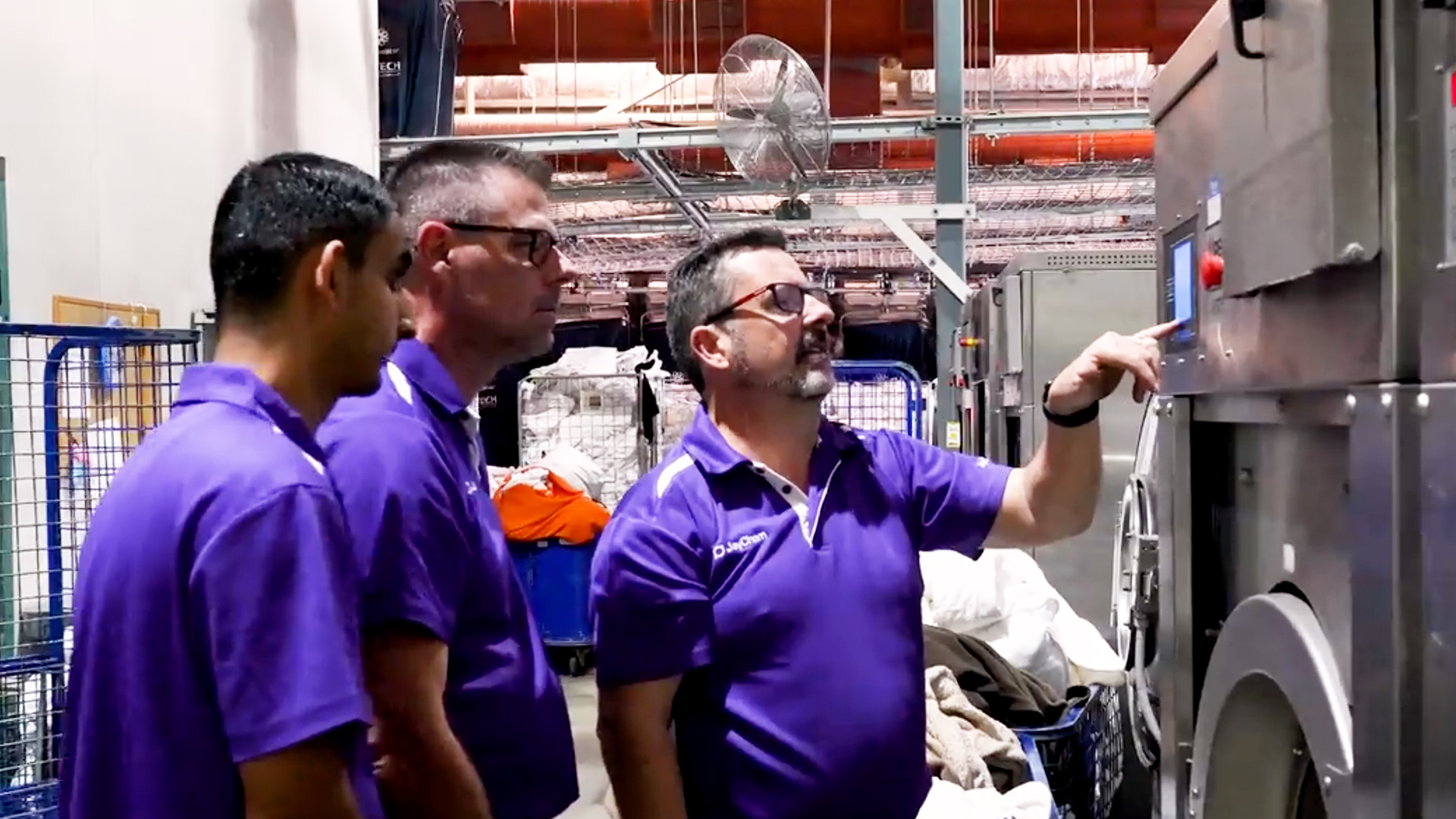In the fast-paced and ever-changing world of business, the commercial laundry industry might not be the first that comes to mind.

However, it plays a significant role in maintaining the hygiene and cleanliness standards of various establishments, from hotels, hospitals, aged care, restaurants, and manufacturing facilities. The importance of training and ongoing development of staff in the industry cannot be ignored, as it directly impacts the quality of service, efficiency, and overall success of businesses in these sectors.
The commercial laundry industry provides a critical service in providing clean hygienic linen helping to maintain public health and safety, especially in settings where this is important to public health. With the COVID-19 pandemic highlighting the importance of proper hygiene and cleanliness, now more than ever it is critical to ensure that our workforce is well-trained and skilled.
- Hygiene and Infection Control: The commercial laundry industry is not just about washing dirty linen; it is about ensuring that what is produced is free from pathogens and contaminants. Properly trained staff can identify, implement, and maintain best practices for infection control, a crucial requirement for compliance to AS:4146 and for settings such as hospitals and food manufacturing facilities, where this plays a key role.
- Efficiency and Cost-Effectiveness: Proper and ongoing training allows workers to follow the correct flow of linen throughout a plant. This can include the correct use of equipment and programs, sorting, stain identification, finishing and storage, reducing operational costs and minimising waste. Skilled employees can also manage time more effectively, ensuring that “turn times” are minimised, and “sequencing” is followed, enabling them to deliver what is needed promptly.
- Equipment Maintenance: Commercial laundry machines and equipment constitute a substantial financial commitment. Well trained staff members can not only ensure efficient and correct machine operation but also possess the capability to quickly identify and communicate possible issues to the appropriate department. Through their understanding of machine functionality and early issue detection, they can potentially prolong equipment lifespan, minimise repair expenses and limit down time.
- Environmental Considerations: With growing environmental concerns, the commercial laundry industry is increasingly pressured to adopt eco-friendly practices. Having staff that have been correctly trained and have a good understanding of the laundry process will help reduce rewash. This in turn will lead to water and energy savings, reduced chemical consumption and an overall lowering of the facility’s environmental footprint, a key component for any business.
- Customer Satisfaction: The quality of laundry services directly impacts customer satisfaction, especially in the hospitality industry. Properly trained staff understand the importance of this, identifying stains and the correct process for stain removal. Ensuring that customers receive clean, well-maintained linen ready for use is critical to the success and reputation of the business and possibly a step ahead of the competition.
- Safety: Safety in the workplace is a top priority, and training plays a significant role in reducing accidents and injuries. Commercial laundry workers deal day to day in an environment full of heavy machinery and potential hazards, making safety protocols and training essential.
The commercial laundry industry may not always take the spotlight, but its importance to public health and various sectors of the economy cannot be underestimated. Skill development and training opportunities serve as a pathway for career advancement within the commercial laundry industry. A skilled workforce is more likely to be engaged and satisfied in their roles, reducing turnover and recruitment costs. Ensuring that the workforce is well-trained and continually developed is essential in maintaining high standards of service, cost-efficiency, and environmental responsibility.
At JayChem, we strongly believe that training is a shared responsibility, and as a service provider with extensive industry experience, we are dedicated to offering a wide range of training solutions to our valued partners. These options encompass classroom sessions, hands-on training, multilingual online portals, on-site auditing, or a blend of these methods tailored to suit individual organisations.
As the industry continues to evolve, investing in training and skill development is a strategic move that benefits not only businesses but also the broader community.
Author: Brad Carruthers, National Technical Specialist
